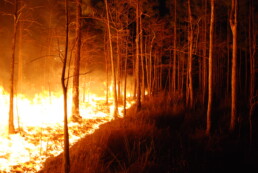“Nobody is counting it, and nobody is moving in the direction of counting it.”
by Zoya Teirstein, Grist
In the early 2000s, as climate denialism was infecting political institutions around the world like a malevolent plague, an Australian epidemiologist named Anthony McMichael took on a peculiar and morbid scientific question: How many people were being killed by climate change? McMichael’s research team tallied up how many lives had been lost to diarrheal disease, malnutrition, malaria, cardiovascular disease (a proxy for heat-related illness), and flooding, worldwide, in the year 2000. The researchers then used computer modeling to parse out the percentage of those deaths that were attributable to climate change. Climate change, they estimated, was responsible for 166,000 lives lost that year.
The world has changed a great deal since. Climate denialism is no longer the world’s de facto climate policy, in large part because the impacts of rising temperatures have become impossible to ignore. The field of climate research has grown apace, and the science behind how climate change affects everything from ultra-rare species of frogs to the velocity of baseballs to the intensity of heatwaves, droughts, floods, and hurricanes has become astonishingly precise. But the research assessing how many people are currently being killed by the climate crisis has remained conspicuously stagnant. While a small handful of studies have attempted to quantify the effect of climate change on mortality decades into the future, the McMichael standard, an ambitious relic of the early 2000s, is still the only estimate of its kind.

This week, a climate and health researcher published a commentary in the journal Nature Medicine that takes the McMichael standard to its logical conclusion. By the end of this year, Colin Carlson, a global change biologist and assistant professor at Georgetown University, wrote in the commentary provided exclusively to Grist, climate change will have killed roughly 4 million people globally since the turn of the century. That’s more than the population of Los Angeles or Berlin, “more than every other non-COVID public health emergency the World Health Organization has ever declared combined,” said Carlson, who also runs an institute focused on predicting and preventing pandemics.
Recent Posts
New Addition to List of Nuclear Near Catastrophes
February 25, 2026
Take Action Now Debris flew for great distances — many times the distance of 270 meters to a nuclear reactor and nuclear storage facility.By David…
Gavin Newsom’s last budget belies his ‘California for All’ pledge
February 24, 2026
Take Action Now Yet, even as the state is poised to lose billions in federal funding, and millions of Californians are losing access to health care…
Israel and American Hawks are Pushing U.S. to Iran War With Catastrophic Consequences
February 23, 2026
Take Action Now At the World Health Assembly in May, member states may endorse an unprecedented strategy declaring that health is not a cost – but…
A Child’s View of the Attack on Venezuela. And a Peace Flotilla
February 23, 2026
Take Action Now Fabricio said that he and his family went out of their building and saw many people also going outside, running around, and kids…




